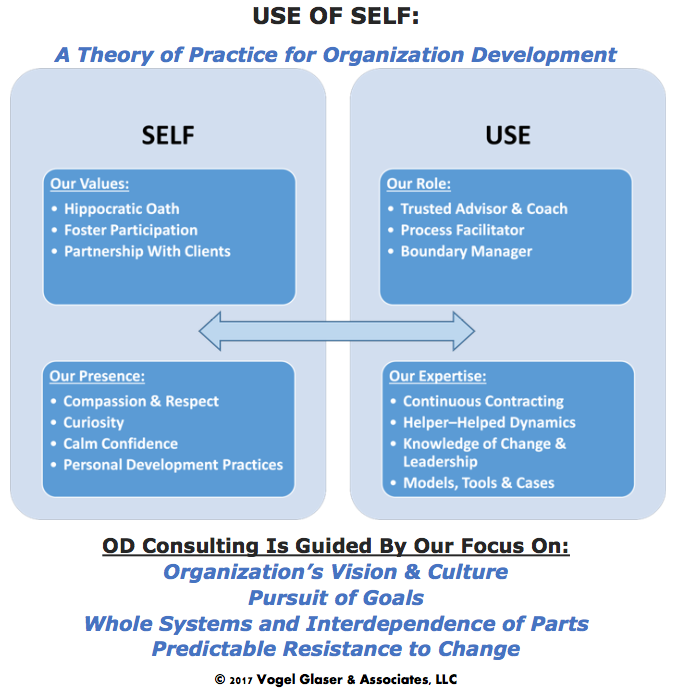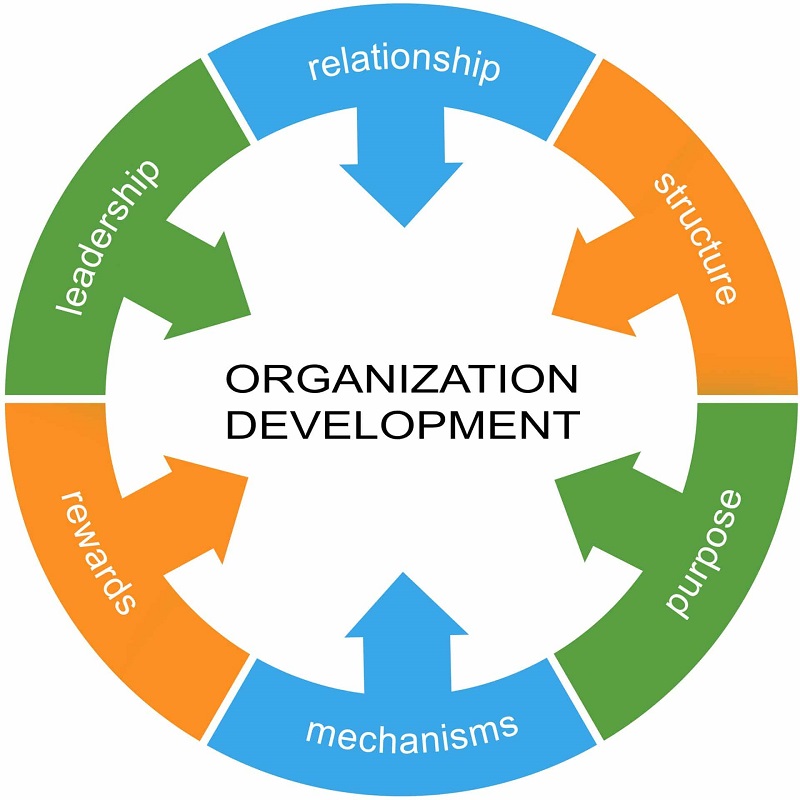Antwort How does OD differ from consulting? Weitere Antworten – What differentiates OD from other types of consulting
OD Process Consulting differs from traditional consulting because client involvement is encouraged throughout the entire process. The ways in which people communicate and work together are addressed in addition to technical or procedural issues that need resolution.Whereas the HR consultant will recommend what to change, the OD practitioner would help the organization on how to make those changes. Therefore, while the HR consultant offers content and process advice, the OD practitioner would partner with the organization on finding the best way to implement the advice.OD consultants often work with managers (and others), so they function as management consultants. Their work often results in improved management systems and methods, as well as other changes.
What does OD mean in consulting : What Does an Organizational Development Consultant Do The goal of OD is to identify areas in which companies can make strategic changes to grow and innovate, improve employee engagement and enhance resilience and change management.
What are the three skills required of an OD consultant
Change management is the discipline of planning, implementing, and evaluating organizational change initiatives. OD consultants need to master change management skills, such as assessing readiness, managing resistance, building commitment, and measuring impact.
What are the challenges of OD consultant : Several common obstacles can impede the success of Organizational Development (OD) interventions. These include employee resistance to change, lack of leadership support and commitment, insufficient communication, and failure to align interventions with organizational goals.
OD Process Consultants often provide coaching, facilitation, leadership, and training as well as project management. Involve the clients in solving their own problems and share your tools and processes so they will learn how to solve future problems.
How to become an organisational development consultant
- Obtain a bachelor's degree.
- Secure an internship.
- Gain in-house OD experience.
- Transition to an external provider environment.
- Human behaviour theories.
- Project management.
- Capacity building activities.
- Business administration software.
What is the specific criteria for OD consulting
OD consultants need to master change management skills, such as assessing readiness, managing resistance, building commitment, and measuring impact. They need to use evidence-based and participatory approaches to change, such as action research, appreciative inquiry, and agile methods.The primary goal of OD is to improve organisation effectiveness; therefore the primary role of an OD consultant is to establish helping relationships within the organisation, with and between individuals and groups, to achieve that objective. The way that goal is acted out depends on the nature of the task in hand.What does a consultant do Consultants undertake projects, analyze situations, and provide expert advice to address various needs. They collect data, develop strategies, propose solutions, and offer guidance to clients in their field of expertise.
5 Phases of the Organizational Development Process
- Entry and contracting. This entry phase establishes a relationship between the OD practitioners (internal change agents or external consultants) and the organization.
- Diagnosis and assessment.
- Feedback and planning.
- Intervention and implementation.
- Evaluating and monitoring.
What are the 5 P’s of consulting : Purpose, people, prep, process, and product—this is how we plan our meetings, online and off.
What consultants actually do : As a consultant, you work with clients to provide advice, strategies, and solutions to specific challenges or goals. You might leverage your extensive experience in the corporate world to resolve supply chain issues. Or, lean into your freelancing expertise to help a business level up its content.
What is the 3 C’s of consulting
I still haven't found a magic formula but I have, nevertheless, noticed three interdependent variables with significant bearing: confidence, credibility and competence. I will describe each of these variables and their key characteristics below.
The Big 4 firms in management consulting are Deloitte Touche Tohmatsu (Deloitte), KPMG International (KPMG), PricewaterhouseCoopers (PwC), and Ernst & Young (EY).It's hard because you are learning and being pushed. Here are a couple of snippets from that guide, based on what you've said: This job is inherently stressful, and you are not going to be the first person to struggle with stress. Consulting firms have mechanisms in place to try to keep consultants from burning out.
What is the McKinsey 3 rule : McKinsey Consulting
The Rule of 3 is a rule of thumb for executive communication. Whenever you're trying to persuade a senior person to do something, always present 3 reasons. Not 2, not 4, but exactly 3.





